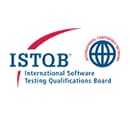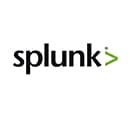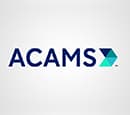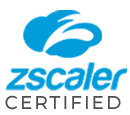Google Professional-Data-Engineer Practice Test Questions Answers
Exam Code: Professional-Data-Engineer
(Updated 387 Q&As with Explanation)
Exam Name: Google Professional Data Engineer Exam
Last Update: 22-Dec-2025
Demo:
Download Demo
Questions Include:
Professional-Data-Engineer Overview
Google Professional-Data-Engineer Exam Overview
| Category | Details |
|---|---|
| Certification Name | Google Professional Data Engineer – Google Cloud Certified |
| Target Audience | Data engineers responsible for designing, building, maintaining, and optimizing data architectures and machine learning models on Google Cloud. |
| Purpose | Validates the skills required to design and manage data processing systems, implement machine learning models, and ensure data security and compliance using Google Cloud tools and services. |
| Exam Duration | 2 hours |
| Number of Questions | 50 multiple-choice and multiple-select questions |
| Passing Score | 70% (35 correct answers out of 50) |
| Exam Format | Multiple-choice and multiple-select questions |
| Exam Delivery | Online (via Google Cloud’s exam portal or Pearson VUE) |
| Exam Cost | $200 (USD) |
| Languages Available | English |
| Prerequisites | Recommended: Experience in designing and managing data processing systems, familiarity with Google Cloud Platform services such as BigQuery, Cloud Dataflow, and Cloud ML Engine. |
| Key Topics Covered | 1. Designing Data Processing Systems 2. Building and Operationalizing Data Pipelines 3. Analyzing and Visualizing Data 4. Machine Learning 5. Data Security and Compliance 6. Managing Data Architecture |
| Preparation Resources | 1. Google Cloud Professional Data Engineer Learning Path 2. Google Cloud Documentation 3. Practice exams 4. Hands-on experience with Google Cloud tools |
| Validity Period | 2 years (requires recertification after expiration) |
| Retake Policy | Candidates can retake the exam after 14 days if they do not pass. |
Other Google Exams
- Chrome-Enterprise-Administrator Exams
- Google-Ads-Video Exams
- Associate-Data-Practitioner Exams
- ChromeOS-Administrator Exams
- Professional-Cloud-Database-Engineer Exams
- Google-Workspace-Administrator Exams
- Looker-Business-Analyst Exams
- LookML-Developer Exams
- Professional-Machine-Learning-Engineer Exams
- Associate-Android-Developer Exams
- Professional-Cloud-DevOps-Engineer Exams
- Professional-Cloud-Network-Engineer Exams
Reliable Solution To Pass Professional-Data-Engineer Google Cloud Certified Certification Test
Our easy to learn Professional-Data-Engineer Google Professional Data Engineer Exam questions and answers will prove the best help for every candidate of Google Professional-Data-Engineer exam and will award a 100% guaranteed success!
Why Professional-Data-Engineer Candidates Put Solution2Pass First?
Solution2Pass is ranked amongst the top Professional-Data-Engineer study material providers for almost all popular Google Cloud Certified certification tests. Our prime concern is our clients’ satisfaction and our growing clientele is the best evidence on our commitment. You never feel frustrated preparing with Solution2Pass’s Google Professional Data Engineer Exam guide and Professional-Data-Engineer dumps. Choose what best fits with needs. We assure you of an exceptional Professional-Data-Engineer Google Professional Data Engineer Exam study experience that you ever desired.
A Guaranteed Google Professional-Data-Engineer Practice Test Exam PDF
Keeping in view the time constraints of the IT professionals, our experts have devised a set of immensely useful Google Professional-Data-Engineer braindumps that are packed with the vitally important information. These Google Professional-Data-Engineer dumps are formatted in easy Professional-Data-Engineer questions and answers in simple English so that all candidates are equally benefited with them. They won’t take much time to grasp all the Google Professional-Data-Engineer questions and you will learn all the important portions of the Professional-Data-Engineer Google Professional Data Engineer Exam syllabus.
Most Reliable Google Professional-Data-Engineer Passing Test Questions Answers
A free content may be an attraction for most of you but usually such offers are just to attract people to clicking pages instead of getting something worthwhile. You need not surfing for online courses free or otherwise to equip yourself to pass Professional-Data-Engineer exam and waste your time and money. We offer you the most reliable Google Professional-Data-Engineer content in an affordable price with 100% Google Professional-Data-Engineer passing guarantee. You can take back your money if our product does not help you in gaining an outstanding Professional-Data-Engineer Google Professional Data Engineer Exam exam success. Moreover, the registered clients can enjoy special discount code for buying our products.
Google Professional-Data-Engineer Exam Topics Breakdown
| Domain | Weight (%) | Topics Covered |
|---|---|---|
| 1. Designing Data Processing Systems | 25% | - Designing data processing systems using Google Cloud - Choosing appropriate tools for data storage and processing - Designing scalable and efficient systems |
| 2. Building and Operationalizing Data Pipelines | 25% | - Creating and managing data pipelines with tools like Dataflow and Cloud Composer - Automating data pipeline operations - Integrating data sources and destinations |
| 3. Analyzing and Visualizing Data | 20% | - Using BigQuery for data analysis - Creating and sharing data visualizations - Implementing reporting and dashboards with Looker and other tools |
| 4. Machine Learning | 20% | - Applying machine learning models using Google Cloud ML Engine - Designing machine learning workflows - Using AutoML and TensorFlow for model training |
| 5. Data Security and Compliance | 5% | - Implementing data security best practices - Managing access control, encryption, and compliance requirements |
| 6. Managing Data Architecture | 5% | - Designing and maintaining data architecture for scalability and reliability - Ensuring high availability and disaster recovery in data environments |
Google Professional-Data-Engineer Google Cloud Certified Practice Exam Questions and Answers
For getting a command on the real Google Professional-Data-Engineer exam format, you can try our Professional-Data-Engineer exam testing engine and solve as many Professional-Data-Engineer practice questions and answers as you can. These Google Professional-Data-Engineer practice exams will enhance your examination ability and will impart you confidence to answer all queries in the Google Professional-Data-Engineer Google Professional Data Engineer Exam actual test. They are also helpful in revising your learning and consolidate it as well. Our Google Professional Data Engineer Exam tests are more useful than the VCE files offered by various vendors. The reason is that most of such files are difficult to understand by the non-native candidates. Secondly, they are far more expensive than the content offered by us. Read the reviews of our worthy clients and know how wonderful our Google Professional Data Engineer Exam dumps, Professional-Data-Engineer study guide and Professional-Data-Engineer Google Professional Data Engineer Exam practice exams proved helpful for them in passing Professional-Data-Engineer exam.














